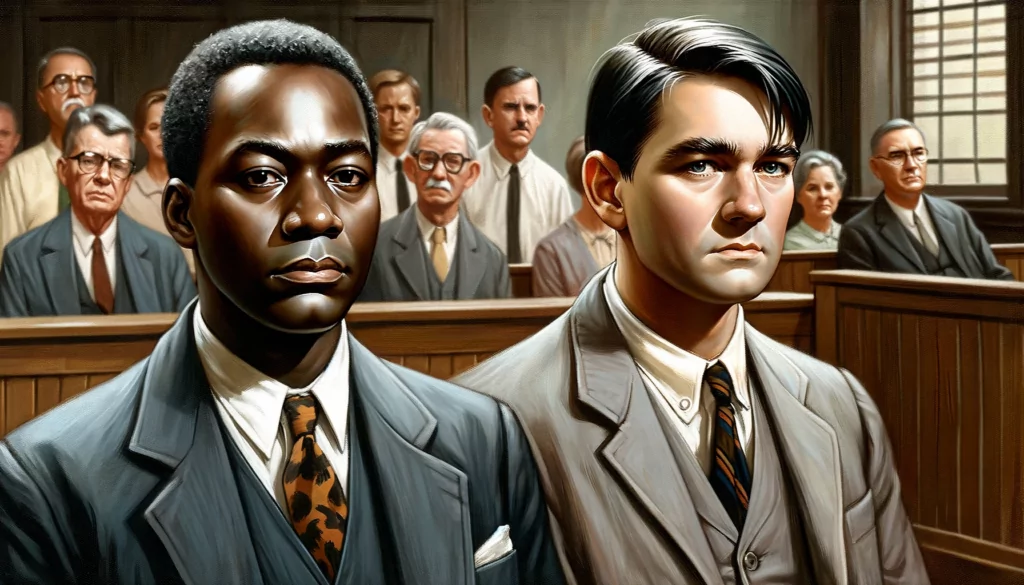The following review example can serve as a guide for students trying to find inspiration when writing an assignment on “Bravery vs Courage”.

✅ AI Essay Writer ✅ AI Detector ✅ Plagchecker ✅ Paraphraser
✅ Summarizer ✅ Citation Generator
At first glance, courage and bravery might seem like synonyms, two words used interchangeably to describe the quality of being fearless in the face of danger. However, a closer look reveals subtle but significant differences between these two traits that are central to the human experience. It’s like comparing the calm, steady flame of a candle to the bright, bold firework – both are sources of light, yet they illuminate in distinct ways. But what precisely is the difference between courage and bravery?
Defining Courage
Courage is not merely the absence of fear but the ability to act in spite of it. It is a composite of mental and moral fortitude. Courage lies in the center of enabling individuals to face daunting circumstances with resilience. This extends beyond the realm of physical dangers and covers the psychological and moral spheres. For instance, courage is manifest in a person who speaks up against injustice despite potential social repercussions. It’s also seen in individuals battling chronic illnesses, persisting through pain and uncertainty. This aspect of courage highlights its depth, transcending momentary acts to become a sustained state of being.
In “To Kill a Mockingbird” by Harper Lee, Atticus Finch, the protagonist, exhibits profound moral courage. He defends a Black man, Tom Robinson, accused of a crime he didn’t commit, in a racially prejudiced town. This act of standing up for justice, despite societal backlash and personal risk, showcases Atticus’s deep-rooted courage. His courage lies not in a lack of fear, but in his commitment to what is right, even when it is unpopular and dangerous.

Or if you are more of an Orwell fan, in his book “1984”, Winston Smith, the main character, displays psychological courage and strength in his quiet rebellion against the oppressive regime of Big Brother. His act of keeping a diary, falling in love, or even thinking against the Party’s doctrine, demonstrates a kind of internal courage. It’s a rebellion not just against the state but against the pervasive fear it instills, making Winston’s acts emblematic of courage in the face of psychological and ideological control.
Defining Bravery
Bravery, often perceived as a subset of courage, is characterized by bold action in the face of danger, particularly physical. It’s the instinctive response during emergent situations requiring immediate action. Bravery is the firefighter rushing into a burning building, the soldier defending their country, or the bystander intervening in a crisis. This concept is frequently associated with a lack of fear, but in reality, it often involves recognizing one’s fear and choosing to act regardless. Bravery is less about the absence of fear and more about the mastery over it.
If you ever heard of J.R.R. Tolkien, you might be familiar with his underrated series of books called “Lord of the Rings” (but we doubt it, you know such niche literature). Bilbo Baggins, a hobbit who prefers a quiet life, displays remarkable bravery when he faces the dragon Smaug. Despite his initial reluctance and fear, Bilbo confronts a literal giant in his path, a clear demonstration of bravery. This act is a bold, direct confrontation with a physical threat, embodying the essence of bravery.

Another fitting example of bravery can be seen in “Harry Potter and the Sorcerer’s Stone” by the one who-shall-not-be-named. Harry Potter’s decision to go after the Sorcerer’s Stone to prevent it from falling into the wrong hands illustrates bravery. The act of sneaking past teachers, facing magical challenges, and ultimately confronting Professor Quirrell and Voldemort, are actions taken in the face of immediate physical danger. Harry’s actions are not just about overcoming fear but actively confronting a dangerous and uncertain situation, typifying bravery.
These examples from literature vividly capture the essence of courage and bravery, highlighting how characters in different situations embody these virtues in their actions and decisions.
Pointing Out the Distinctions Between Courage and Bravery
While courage and bravery are distinct, they often intertwine. Bravery can be seen as an actionable expression of courage. It’s the moment courage steps into the light, transforming internal resolve into external action. In this sense, bravery is the visible manifestation of the deeper, enduring quality of courage.
Circumstances Matter
When we talk about courage vs bravery, the contexts in which they are applied significantly differ. Courage is more versatile; it can show up in a range of situations. For example, a person demonstrating moral courage might stand up against unfair practices at work, knowing well it could risk their job. It also appears in personal battles, like someone dealing with an illness over many years, showing emotional and psychological strength. On the other hand, bravery is often linked to physical acts in immediate, often dangerous situations. Like a passerby rushing to help in an accident, bravery shines in these urgent, often life-threatening moments, where you have to take the leadership.
Nature of the Risk
The risks involved in bravery vs courage are quite distinct. Courage encompasses a broad spectrum, dealing with risks that are not just physical but also moral, emotional, and psychological. For instance, a whistleblower exposing corruption shows courage by facing potential backlash, reflecting moral risk. In contrast, bravery usually relates to physical dangers that demand immediate action. Think of a firefighter entering a blazing building to save lives; this is bravery in its most typical form, confronting direct, physical peril and showing strength. While courage can be a quiet, internal struggle against fears, bravery is often a visible, external fight against tangible dangers.
Emotional Involvement
The emotional aspects of courage and bravery also differ. Courage often involves a deeper, more reflective process. It’s about understanding one’s fears, evaluating the risks and consequences, and then deciding to act despite them. This might be seen in someone who decides to speak publicly about a personal issue, knowing it could invite criticism but feeling it’s important to share their story. In contrast, bravery often requires a more immediate, instinctive reaction. It’s less about long deliberation and more about quick, decisive action in the face of danger like someone instinctively running into a risky situation to help others without pausing to weigh the consequences.
Closing Thoughts
In conclusion, courage and bravery, while overlapping, are distinct virtues. Courage is a broader term signifying the endurance of both physical and psychological challenges, often sustained over time. Bravery is more immediate, typically associated with physical risks and bold actions. Understanding their nuances not only enriches our vocabulary but also deepens our appreciation for the complexity of human resilience and the diversity of its expressions. Both, in their own right, contribute to the human experience.
Follow us on Reddit for more insights and updates.





Comments (0)
Welcome to A*Help comments!
We’re all about debate and discussion at A*Help.
We value the diverse opinions of users, so you may find points of view that you don’t agree with. And that’s cool. However, there are certain things we’re not OK with: attempts to manipulate our data in any way, for example, or the posting of discriminative, offensive, hateful, or disparaging material.